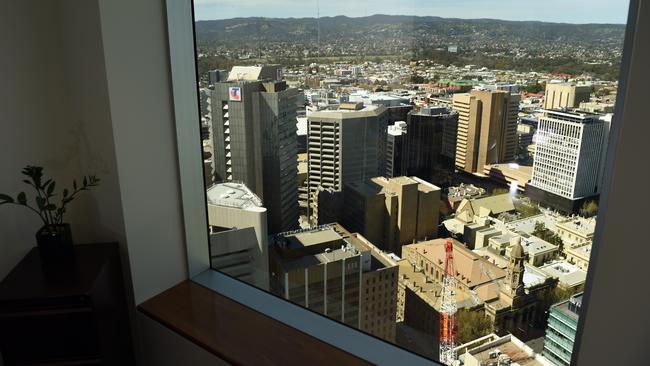
Exalted as a creative collaborative zone in the industry’s millennial-friendly jargon, the humble tea room is now maligned as a potential virus super spreader.
The lockdown conditions have not augured well for the office sector overall, but have been particularly virulent for the co-working (or flexible) space providers. While traditional tenants are tied to a long lease, most co-working tenants are on rolling arrangements and free to leave without penalty. Overseas, the giant of the sector, WeWork (now called the We Company), never managed to list on the sharemarket and the bonds of the battered one-time unicorn are trading at around 40c in the dollar.
At home, the picture is also confronting. Pure-play Victory Offices this month emerged from a 1½-month trading suspension with an urgently needed recapitalisation to raise $15m.
Underwritten by Ord Minnett, the one-for-one entitlement offer is struck at 37.5c, a hefty 27 per cent discount on the last traded price of 51c. Despite the highly dilutive terms, investors were simply happy enough that Victory will pocket the dough: the stock closed a mere 1c or so lower after trading resumed on June 4.
As a rule of thumb, co-working operators need an occupancy rate of 80 per cent or more to be profitable. Victory forecasts an occupancy rate of 20 per cent up to September — rising to 50 per cent or “pre-COVID-19 levels” by December and 80 per cent by June next year.
Victory reports that half of its landlords have agreed to reduce or defer obligations, “with discussions ongoing with the others”. So far the operator has won either three to six-month rent holidays or a 50 per cent reduction for six months. The remaining landlords are expected to fall into line with at least 50 per cent reductions.
Victory shares listed in June last year after its initial public offer raised $30m at $2 a share. The shares peaked at $2.54 in October but it’s been a downward slide since then, with former Victorian premier Steve Bracks no doubt wondering why he took on the chairman gig.
As Victory stresses, it’s not the only one facing woes in the fragmented sector. As the morale-boosting COVID-19 line goes, “we are all in this together”.
Meanwhile, Australian-owned global operator Servcorp is working through the COVID-19 implications, but expects a “significant but temporary reduction in serviced office occupancy and slowdown utilisation, with some offset from our virtual office products”.
Founded by octogenarian rich-lister Alf Moufarrige in 1978 and listed since 1999, Servcorp was a pioneer in serviced offices (the ones where the common receptionist answers the phone in the name of Acme Fasteners one moment and Acme Consulting the next).
Taken aback by the emergence of co-working giants such as WeWork of the US, Servcorp responded by spending $60m on converting floors to the more casual co-working format.
Servcorp operates across 146 floors in 22 countries, with a significant presence in Japan and London.
But the real key to the sector’s recovery is the willingness (or otherwise) of the landlords to provide relief — and after playing hard ball initially they seem to be ceding to reality.
Servcorp shares almost halved at the height of the market rout in March and are still about 38 per cent off the pace. The company has in its favour $76m of cash (as of December) and no gearing.
“I used to have a lot of debt,” Moufarrige says. “Now I’m old and if I want money no one will give it to me.”
Unusually, the company has a share buyback program to purchase up to three million shares, or roughly 3 per cent of its capital.
Moufarrige and his family interests account for more than half the register.
Though Moufarrige says he’s not ready to retire, he says succession planning is not being ignored despite last year’s departure of his sons Marcus and Taine. “We are training up people to run it,” he says. “Servcorp would be in good hands if I did decide to topple off my perch.”
The market is valuing Servcorp at $250m and Victory at a paltry $20m.
Tim Boreham edits The New Criterion
tim@independentresearch.com.au








In the new era of germ awareness, co-working spaces have transformed from a booming sector to a public health hazard.